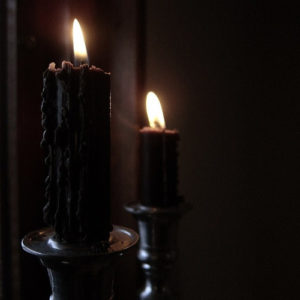You have no items in your cart. Want to get some nice things?
Go shopping
Adarkwa House,
West Legon,
Accra, Ghana.
30/01/2016.
Ayomide,
Did you take note of the address? If you didn’t, come on, read it again. Good. Now, if you’re still reading this letter after realising that I’m not in Lagos as I write this, perhaps your ears are finally ready to funnel my words to your brain.
Did you take note of the address? If you didn’t, come on, read it again. Good. Now, if you’re still reading this letter after realising that I’m not in Lagos as I write this, perhaps your ears are finally ready to funnel my words to your brain.
I should not have to explain myself to you. After all, I walked this earth for more than four decades before you fought your way into it, and when you did, you came in through my portal. It was my blood poured on your head that baptised you into humanity. You suckled at my breast and I carried you on this back of mine. I washed your nappies, sucked snot from your nostrils so you could breathe easier and held your hand through the night whenever you were ill. But apparently, all I ever did means nothing to you now.
He asked me to write to you, he begged me to. He is the kind of man who does not think it is shameful to beg a woman. I lived for seventy-six years and didn’t even realise that men like that existed, seventy-six years. Now, don’t you take this as me criticising your father. Paul, God rest his soul, was as good as any man I knew when I chose him and that’s that. Making comparisons between both men would be foolishness and that is not the point of this letter.
I suppose the point is to let you know I will now be dividing my time between Accra and Lagos. Or rather, we will be dividing our time between Accra and Lagos. We being Julius and I. Your sisters know about this already, but they tell me you threatened to cut them off the last time they brought up my new marriage with you. They say you called my marriage shameful and dishonourable, that you called me a disgrace to your father’s memory.
Julius says the girls might have misunderstood you, but I know they didn’t. Of course they didn’t, is it not you who has refused to speak to me for two years now? You, who unleashed your dogs on Julius’ relatives when they came to your house. You, who after I asked your wife to give you an invite to my eightieth birthday even though you were behaving like a toddler, sent the shredded invite back to me by speed post. You, who subsequently banned said wife from calling me or coming to visit me while I still lived in Lagos. You, who sent policemen to evict me from my own home. You, Ayomide, you. You useless ungrateful good for nothing child, akukubi omo lasan ikeji aja.
It took a day for me to come back to this and even as I write my anger has not subsided. I considered abandoning this attempt at a reconciliation of some sort, but then, I promised Julius that I would get in touch to let you know that we have moved to his place in Accra. So there, I told you that.
I stayed up all night and sifted through what I know of your life since I conceived you for a sign that should have prepared me for your disdain. And I see now that you have always ignored us when you were angry, always wielded your silence like a sword. Often as a teenager, you’d refuse to talk to anyone in the house until your father, God soften his resting place in the earth for he was a good man, would apologise to you. Now that I think about it, I don’t remember him ever apologising to your siblings, just you. Ayomide – his joy and pride, the one who would carry on his name and inherit his title.
You were my favourite child before you were born. Your father and I always claimed that we had no favourites but from the moment an ultrasound scan revealed that you would be a male child, your sisters stood no chance. I was already in my forties, we had three girls and no boy and your father needed a son to inherit his chieftancy title. So, of course, I wanted a boy. After I gave birth to you, your father called you Ayomide – my joy has come. Until recently, I also thought of you as my joy. After all, you saved me from polygamy; if I didn’t have you, Paul would have taken a younger wife who could give him a son.
When your father died, we all grieved but I imagine you never noticed we were extra careful around you, more considerate of your pain. As you spent days alone in his bedroom, you were once again the baby of the family and we tried to carry you. I would have liked to keep his wedding ring, but you wanted it for yourself so I let you have it. Your siblings also gave up little bits of him that could comfort you. They let you have reminders they might have wanted for themselves, not that you ever expressed any gratitude for those little sacrifices. I wonder if you even considered for a moment that someone else might have wanted his diary, his hymnbook or his last pair of glasses. But you took them the way you take everything in life, with a certainty that the world owes you anything you ask of it.
Life has denied you only one thing that I know of so far: more years for your father. You were so sure he would beat cancer again. I remember the day you came to the hospice in London and he wanted to say a final goodbye, you almost shouted at him as you backed away and assured him that you would see him when he arrived back in Lagos. And though by then all I wanted was for him to have a peaceful painless passage, your firm voice seduced me into hope.
As the days stretched into months, the hope your firm voice had planted grew in me, branching through my soul until I was certain that my Paul would somehow recover. But just like the sickness that afflicted him without advance notice, death sneaked in and snatched Paul Olaiya from my arms. I would not let anyone take him to the morgue for a whole day, I lay in the hospice bed with him, screaming loudly enough to wake the dead whenever anyone walked into the room, until Julius came. Perhaps because he was the only black doctor in the whole place or because I was just exhausted, I let him come close and allowed him to talk me into releasing my grip on Paul’s body. It’d been about a year since his wife died, on his sixtieth birthday, so he knew just what to say.
After Paul was wheeled away, it was Julius, the man about whom you would say – of all people a dirty coal-black Ghanaian, COAL, CHARCOAL!, who asked if there was anyone I wanted to call. That’s when I called you, not your eldest sister but you, Ayomide my son, dearest and only, my joy.
Could I have imagined all that would happen next? No. But if I could, I would not have expected you to one day call a man charcoal, not at all. I didn’t teach you that, did I? Where did you learn to despise your own kind so much? To hate another shade of your own flesh? Ayomide, who taught you to equate blackness to filth? Are you self-hating now? Are you racist against your own? What does this even mean?
I mourned your father for over two years before Julius came to visit me in Lagos, and even when he came, I did not expect to fall in love. For one, I would never have considered a man one year my junior when I was young, talk less of one nearly two decades younger. But here we are.
I never thought that old women could have another chance at love or marriage, surely not grandmothers in their late seventies. Yet, there I was, hoping he would be back in Lagos again, finding reasons to visit London, even in winter, with these old bones. But even as we flew back and forth, we did not name the tenderness that shimmered between us, at least I couldn’t. When he retired and decided to stay in England, I could no longer bear the thought of enduring the cold in order to be with him. So, I asked him to come live in Lagos, and when he asked what there was for him in Lagos, I surprised myself by saying – love.
Of course we lied to you in the beginning, saying he was just a tenant. He wanted us to tell you and your sisters about us as soon as he moved to Lagos, but I told him I wasn’t ready. He had no children and couldn’t understand why I was worried. While I was afraid of what your sisters would think or say, for some reason I did not dwell much on what your reaction might be. Foolishness. You were the one I should have been worried about, you owned the house I’d called home since I became Mrs Olaiya. It never bothered me that you had the power of attorney when your father became ill, or that he had willed even the house we lived in to you. Why would I be afraid of my own son? But we live and learn, don’t we?
Yes, I was worried about explaining myself to you children but I still managed to enjoy a few months of bliss before you walked in on us that day in April. I expected anger, that’s natural, no one can meet a man he barely knows in his mother’s bed without reacting in some way. I thought your boiling anger would simmer once I explained that I had never been so happy in my life that Julius and I were very happy. But when it simmered, your anger congealed into a rage that exploded in my face. The things you said to me, to your mother, you shouldn’t be able to sleep at night for the shame; I couldn’t.
At first, I thought you were afraid Julius would take your father’s place. Since that is something only grief can convince you is possible, I decided to give you time to locate your senses, but when the eviction notice arrived, I realised you might have lost them permanently. They say only God doesn’t have a substitute, that people are plenteous in copies and one can replace the other if it is necessary. I don’t think this is true, Ayomide, I was your father’s wife for five decades and I knew him for over sixty years, nobody can equal him in my life, not in this lifetime.
What you returned to again and again, while you were still speaking to me, was the word charcoal. You spat it at me in every conversation – How can you? How can you want charcoal? It took a while to admit to myself that what I heard in your voice was not anger but disgust. I wanted to weep when I saw you twist your mouth and turn away when Julius tried to shake your hand the last time you met him. You weren’t just being a toddler, Ayomide, you were being a classmate I had while studying in England all those decades ago. You held yourself apart the way she used to, as though my proximity put her in peril, as though my skin would leave a brown stain that would never come off on hers. I’d never expected to see that look on a black man’s face, and on my son’s? I wondered then and still I wonder, who taught you to hate Julius’ skin, to despise his blackness, to hate yourself?
You have said you will never forgive me and I am not writing to obtain your forgiveness. I realise now that I don’t need it and I retract every request for pardon I have made in the past. You can keep your forgiveness and have it for dinner if it pleases you, I don’t want it. Because ask yourself, if this were your father, would you refuse to speak with him? If he had outlived me, would he not, as everyone does, have married a new wife so he would be taken care of, so he would not be lonely, so he would not be forced into visiting prostitutes? Is it because I’m a woman that you find this so disgusting?
I know it is strange, perhaps even unheard of, for an old woman like me to do this. Fingers will be pointed and tongues will be wagged till they nearly fall out. But I may not have up to ten years left in the land of the living and I will not spend them in fear of what people might think. I have lived a responsible life; I have been a dutiful daughter and a good wife. By that I mean I dedicated myself to doing what other people wanted and expected of me. This thing that shimmers between Julius and I might be the only thing I will take from life just for myself, just because I want it. And after eight decades here, I have finally decided that wanting something is enough reason for me to have it.
So there, Ayomide, there you have it, I will stop now because I am weary. Think about these things and write if you will.
Yours,
FK Olaiya Adarkwa (Mrs)

About Ayobami Adebayo
Ayobami Adebayo holds BA and MA degrees in Literature from Obafemi Awolowo University. She also has an MA in creative writing from the University of East Anglia where she was awarded an international bursary for creative writing. Her debut novel, Stay with Me, has been shortlisted for the Baileys prize.





One comment